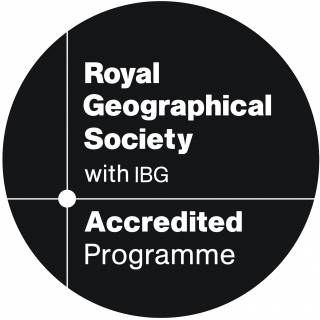MSc Urban Spatial Science - Aims and Outcomes
Programme Aims
- Experience a broad range of theoretical perspectives on the demographics, economics, form, function, network interactions, governance, policy, planning and, crucially, science of cities across the World.
- Equip students with qualitative, quantitative and spatial analytic skills for the interpretation of urban data leading to data-informed decisions and policies.
- Explore emerging technological innovations, methodologies and theories in cities across the Globe to tackle fundamental governance and sustainability problems facing the urbanised World.
- Empower students to critically engage with and reflect upon commonly used concepts, methods and buzzwords in urban analytics and governance, providing confidence in responding to technological transitions and a robust foundation for future employment.
- Combine the taught material, academic expertise and personal research interests to develop an independent and unique research project into a pertinent and applied urban-centric topic.
Learning Outcomes
Knowledge and understanding
- Identify key urban theories and discuss their relationship to contemporary challenges
- Outline topical global urban problems alongside recent methodological approaches and establish the validity of spatial analysis in furthering understanding
- Critically debate and assess urban research in relation to methodological advancement and policy outcomes
- Build upon module content and wider academic and policy literature in formulating independent, reproducible and original urban related research
Skills, techniques, methods and practical applications of concepts and theories
- Identify geo-spatial data sources and critically assess their applicability for urban focused studies
- Explain and implement relevant geo-spatial analytical and visualisation approaches in relation to relevant theory
- Propose smart, data-informed and appropriate solutions for contemporary and future urban challenges
- Undertake spatial analysis and urban science research to produce outputs — including data visualisation — appropriate to the intended audience
- Describe and evaluate competing urban data sources, methodologies, workflows and visualisations
- Compose academically rigorous and robust reports with a flowing narrative, outlining debate, being interspersed with opinion, whilst highlighting research gaps
- Draw on taught ‘best-practice’ in industry and academia to write reproducible code and analytical workflows to obtain, wrangle, and analyse data
Transferable skills
- Work in a team from diverse educational and international backgrounds in achieving a common goal
- Evaluate and make decisions at all stages of the typical spatial data science workflow in creating meaningful and robust outputs
- Effectively source, wrangle, and analyse data, and appropriately communicate the results based on the intended audience
- Realistically solve problems based on the available data, resources, and expertise
- Write balanced and concise reports that consider available evidence — and its limitations — in reaching recommendations
- Lead and manage an independent research project, in turn demonstrating time management, critical evaluation, ethical consideration and appropriate statistical methodologies
 Close
Close


